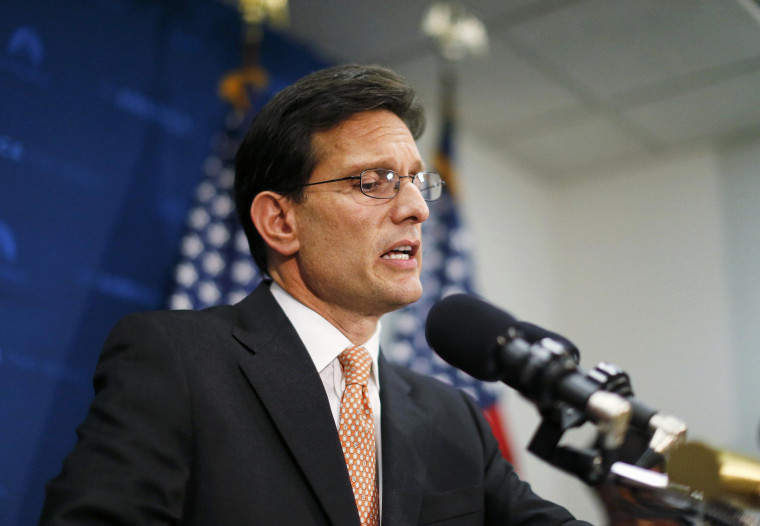One of the biggest electoral upsets of my adult lifetime came in Virginia during the 2014 midterms. It was widely assumed that then-House Majority Leader Eric Cantor (R-Va.) was a safe bet to win another term, but those assumptions were wrong: the incumbent Republican, widely seen as a national powerhouse in his party, ended up losing in a GOP primary.
The race wasn't even especially close: Cantor suffered a double-digit defeat. It wasn't long before the reasons came into focus.
As Republican politics moved sharply to the far-right throughout the Obama era, many conservatives were told to believe that GOP congressional leaders' inflexible opposition to everything the White House wanted simply wasn't enough. The party's base was told that leaders like Cantor were weak pushovers, failing to do "what needed to be done" to stand up to the Democratic president.
It wasn't true. It didn't matter. Cantor's constituents believed the messaging from fringe elements and conservative media, and his legislative career came to an abrupt and unexpected halt. Two years later, these same attitudes among rank-and-file Republicans would propel a ridiculous television personality to the party's presidential nomination -- and soon after, the White House.
Now, with the radicalization of his party reaching new depths, Cantor wrote a Washington Post op-ed, reflecting on the recent attack on the U.S. Capitol, and suggesting it's time for the GOP to try to shift back toward reality.
In many ways, it is the classic prisoner's dilemma. If the majority of Republican elected officials work together to confront the false narratives in our body politic — that the election was stolen (it wasn't), that there is a QAnon-style conspiracy to uproot pedophiles at the heart of American government (there isn't), that a Democratic-controlled government means the end of America (it doesn't; it may produce worse policy, but the republic has survived 88 years of Democrats occupying the White House) — all Republicans will be better off. If instead most elected Republicans decide to protect themselves against a primary challenge through their silence or even their affirmation, then like the two prisoners acting only in their own interests, we will all be worse off. (The same holds true for Democrats.)
In the same op-ed, Cantor rejected the ridiculous "stop the steal" narratives as hollow "posturing," encouraged his party to denounce "false narratives and the conspiracy theories," and condemned those who "promote disinformation."
To be sure, a message like this comes with all kinds of relevant caveats. For one thing, Cantor's op-ed included some unnecessary blame-both-sides commentary. For another, the Virginia Republican is a highly imperfect messenger: Cantor was a relentless partisan during his time on Capitol Hill, and he was only too pleased to revel in his party's far-right shift -- right up until it cost him his seat.
All of which is to say, he's a curious choice to be a voice of reason within the GOP in 2021.
But to a very real degree, this relevant context helps capture the larger point: when even Eric Cantor thinks the Republican Party is spiraling toward a chaotic fantasyland, with tenuous connections to reality, the GOP ought to realize it's arrived at a dangerous place.

